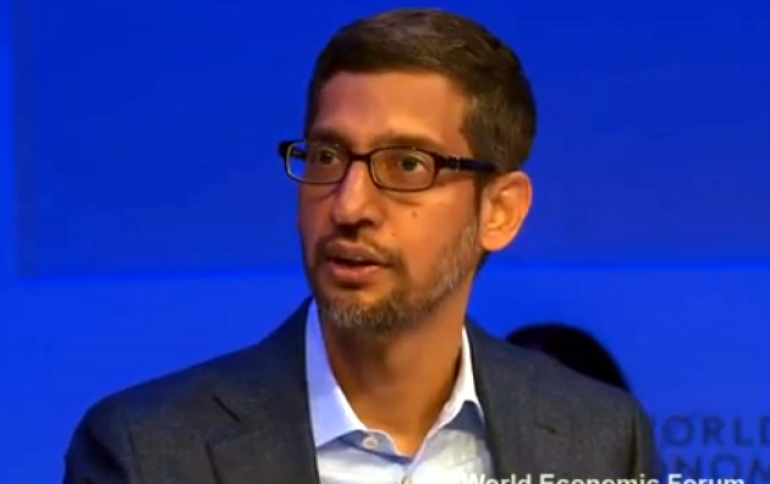
Google CEO Talks About Healthcare, Privacy
Sundar Pichai, Chief Executive Officer of Alphabet spoke during a session of the 50th World Economic Forum (WEF) annual meeting in Davos, January 22, saying that healthcare offers the biggest potential over the next five to 10 years for using artificial intelligence to improve outcomes.
U.S. lawmakers have raised questions about Google’s access to the health records of tens of millions of Americans. Ascension, which operates 150 hospitals and more than 50 senior living facilities across the United States, is Google’s biggest cloud computing customer in healthcare.
“When we work with hospitals, the data belongs to the hospitals,” said Pichai. “But look at the potential here. Cancer if often missed and the difference in outcome is profound. In lung cancer, for example, five experts agree this way and five agree the other way. We know we can use artificial intelligence to make it better,” Pichai added.
Google has been using artificial intelligence to automatically analyze MRI scans and other patient data to identify diseases and make predictions aimed at improving outcomes and reducing cost.
The U.S. lawmakers asked the company in November to provide information about other health systems that provide information to Google, whether Ascension clients will be allowed to opt out of the project, and whether the data be used for advertising.
Pichai said there was already strong privacy protecting regulations in place that provide a framework for Google to operate.
Google also agreed in November to acquire Fitbit Inc for $2.1 billion, aiming to enter the wearables segment and invest in digital health.
Google’s CEO also highlighted the importance of artificial intelligence.
“AI is one of the most profound things we’re working on as humanity. It’s more profound than fire or electricity,” Pichai said.
Google has issued a set of AI principles that prohibit weapons work, but doesn’t rule out selling to the military. It has also pledged not to renew its Project Maven contract, which involves using artificial intelligence to analyze drone footage.
“AI is no different from the climate,” Pichai said. “You can’t get safety by having one country or a set of countries working on it. You need a global framework.”
Technology such as facial recognition can be used for good, such as finding missing people, or have “negative consequences,” such as mass surveillance, he said.
Current frameworks to regulate the technology in the U.S. and Europe are a “great start,” and countries will have to work together on international agreements, similar to the Paris climate accord, to ensure it’s developed responsibly, Pichai said.The European Union is set to unveil new rules AI developers in “high risk sectors,” such as health care and transportation.




















